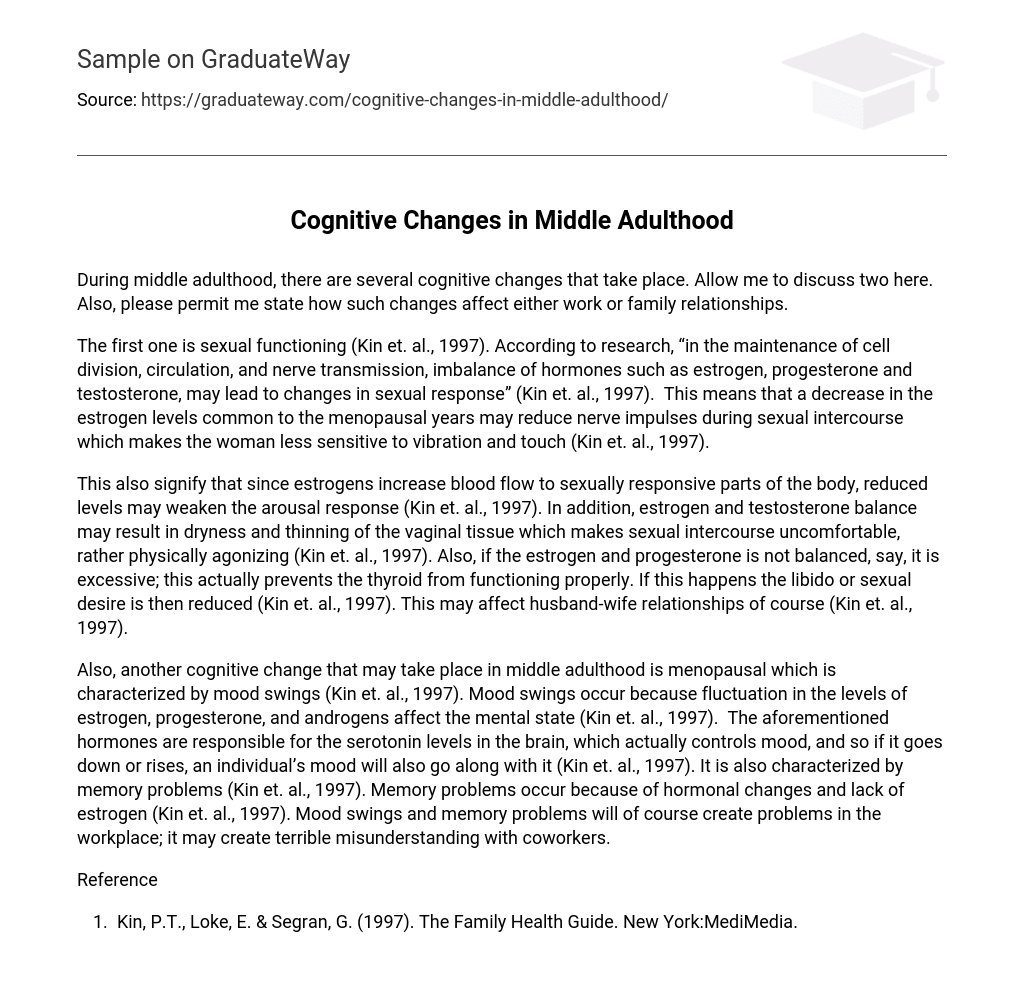During middle adulthood, there are several cognitive changes that take place. Allow me to discuss two here. Also, please permit me state how such changes affect either work or family relationships.
The first one is sexual functioning (Kin et. al., 1997). According to research, “in the maintenance of cell division, circulation, and nerve transmission, imbalance of hormones such as estrogen, progesterone and testosterone, may lead to changes in sexual response” (Kin et. al., 1997). This means that a decrease in the estrogen levels common to the menopausal years may reduce nerve impulses during sexual intercourse which makes the woman less sensitive to vibration and touch (Kin et. al., 1997).
This also signify that since estrogens increase blood flow to sexually responsive parts of the body, reduced levels may weaken the arousal response (Kin et. al., 1997). In addition, estrogen and testosterone balance may result in dryness and thinning of the vaginal tissue which makes sexual intercourse uncomfortable, rather physically agonizing (Kin et. al., 1997). Also, if the estrogen and progesterone is not balanced, say, it is excessive; this actually prevents the thyroid from functioning properly. If this happens the libido or sexual desire is then reduced (Kin et. al., 1997). This may affect husband-wife relationships of course (Kin et. al., 1997).
Also, another cognitive change that may take place in middle adulthood is menopausal which is characterized by mood swings (Kin et. al., 1997). Mood swings occur because fluctuation in the levels of estrogen, progesterone, and androgens affect the mental state (Kin et. al., 1997). The aforementioned hormones are responsible for the serotonin levels in the brain, which actually controls mood, and so if it goes down or rises, an individual’s mood will also go along with it (Kin et. al., 1997). It is also characterized by memory problems (Kin et. al., 1997). Memory problems occur because of hormonal changes and lack of estrogen (Kin et. al., 1997). Mood swings and memory problems will of course create problems in the workplace; it may create terrible misunderstanding with coworkers.
Reference
- Kin, P.T., Loke, E. & Segran, G. (1997). The Family Health Guide. New York:MediMedia.





